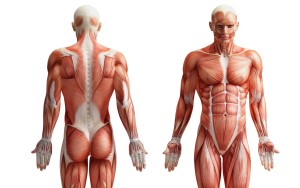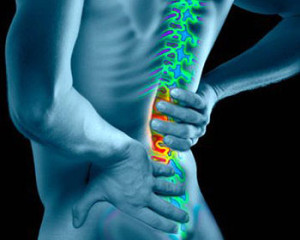How to Know if Rolfing or Deep-Tissue Massage is the Right Fit for You
 Let’s face it. Not many people know what Rolfing is; let alone how it can help them. Even in a very forward-leaning city like Austin, (rolfing Austin TX is my expertise) there are only about 15 Rolfers practicing here so there aren’t many resources out there for potential clients to lean on to find out more. It’s a challenge I deal with every single day, whether talking with a new client or chatting with an acquaintance about what I do for a living.
Usually when I tell people I’m a Rolfer, if they actually understand the word and don’t think I said “roofer,” they ask one of two questions: “That really hurts right?” (that’s a topic for another post), or “That’s a type of really deep massage, isn’t it?” The answers are “No,” and “No” to those questions, and I’m here to set the record straight….on the second question for now.
Let’s face it. Not many people know what Rolfing is; let alone how it can help them. Even in a very forward-leaning city like Austin, (rolfing Austin TX is my expertise) there are only about 15 Rolfers practicing here so there aren’t many resources out there for potential clients to lean on to find out more. It’s a challenge I deal with every single day, whether talking with a new client or chatting with an acquaintance about what I do for a living.
Usually when I tell people I’m a Rolfer, if they actually understand the word and don’t think I said “roofer,” they ask one of two questions: “That really hurts right?” (that’s a topic for another post), or “That’s a type of really deep massage, isn’t it?” The answers are “No,” and “No” to those questions, and I’m here to set the record straight….on the second question for now.
First off, I do want to acknowledge that I am NOT a deep-tissue massage therapist, but I know and love many of them here in town. I am a Rolfer of 7 years, and I have a pretty solid sense for when people can benefit from Rolfing or would benefit more from someone else’s work. To my MT friends out there, I’m happy to hear your comments and corrections. What I’m writing here is based on my years and experience in clinical practice, and feedback I’ve received directly from clients along the way.
So, how do you know which therapy you need?
You have a new injury, such as muscle strain, or want post-activity soreness relief.
I’ve done a lot of first-aid work over the years – regular clients come in and they’ve just injured themselves, or new clients come in on a referral with a fresh injury. I can successfully treat a lot of acute injuries, and have many times over the years, but there’s an army of expert massage therapists out there that focus specifically on that. Rolfing is much more powerful a therapy addressing long-term and chronic pain and postural issues.
You really want strong pressure and intense sensation to just get rid of that knot already.
Seek out massage therapists that advertise that. Rolfing is not “deeper-tissue massage”, and truthfully the phrase “deep-tissue” is generally misunderstood. “Deep” does NOT mean painful, and the deep-tissue MT’s that I typically recommend are not in the business of hurting you. But if you look online, there are practitioners that celebrate that. It’s OK if that’s your preference, but you won’t find that type of work with most modern Rolfers, myself included.
 You have chronic (long-term) musculoskeletal pain that is having trouble resolving or is of unknown origin.
You have chronic (long-term) musculoskeletal pain that is having trouble resolving or is of unknown origin.
If some type of pathology has been ruled out, this is where Rolfing really shines. Rolfing is a holistic system, meaning it addresses the whole body vs. a very specific area of pain (though again, I’ve done that), and it’s designed to reorganize your whole body to be more efficient, supported, and comfortable.
When you’ve had pain for a long time, your body creates compensatory patterns to help you continue to move and function. So, when neck pain mysteriously shows up a few months after you twisted your ankle stepping off a curb, that’s because the limp you walked with for awhile affected your hips, which made it harder for your spine to move easily, which in turn created tension in your neck and shoulders. Rolfing systematically removes this series of compensations so your WHOLE body can rebalance. Most of the time, those painful areas disappear along the way as the kinks in the system get unstuck. It can seem like magic – a lot of clients tell me they one day noticed they hadn’t been in pain in awhile – but it’s a pretty logical process.
You’ve been to a massage therapist or chiropractor and your symptoms are not resolving, or you need to get the same work in the same place over and over again.
This is a great indication that there is a systemic issue going on. It’s likely you’re receiving good care, but your body just can’t sustain the change. Rolfing’s a great way to hit the reset button to balance and align your structural system. Then, the work you do with your MT or chiropractor can be easier on your body and last longer (and, I’ve heard several times from chiropractors over the years that they love seeing clients after they’ve received Rolfing as their work is then easier!).
You have a postural or structural challenge (scoliosis, knock knees, post-surgery hardware implants, etc.) that is painful or limits movement.
Rolfing also does great in these situations, where the body’s structure is compromised somehow, or has simply reshaped itself after years of sitting at a computer, playing an instrument, etc. Very often, postural challenges can be completely resolved; it depends on how long they’ve been there. Almost always, Rolfing creates better support and ease in the body and helps you live more comfortably with that challenge. And in my practice specifically, I focus on educating you as the client so you can learn how to better support yourself through movement and posture in your day-to-day activities, and often how to do them even better. When clients proactively continue these new practices, the power of Rolfing and the changes it brings the body really settle in for the long haul.
You want to gain deep awareness about how your body works in your unique environment and lifestyle.
Oh yeah, Rolfing baby! I love this one. If you’re proactively interested in building your body into something better and discovering deeper body-based patterns that you carry, Rolfing is absolutely for you. Not only will we build you a new body to discover and explore your Self and your world with, we’ll create new ways to move and educate you about what your triggers are for falling back into disrepair. You will be empowered to proactively take charge of your physical well-being. If that’s not growth, I don’t know what is!
Hopefully, that clarifies things for you a bit and gives you a sense for what Rolfing can do! If you’re ever curious or just not clear if what you have going on can be addressed through Rolfing, feel free to drop me a line or give a call. I love talking about this stuff and will happily answer your questions!
Mike Williams | 512-470-8998
